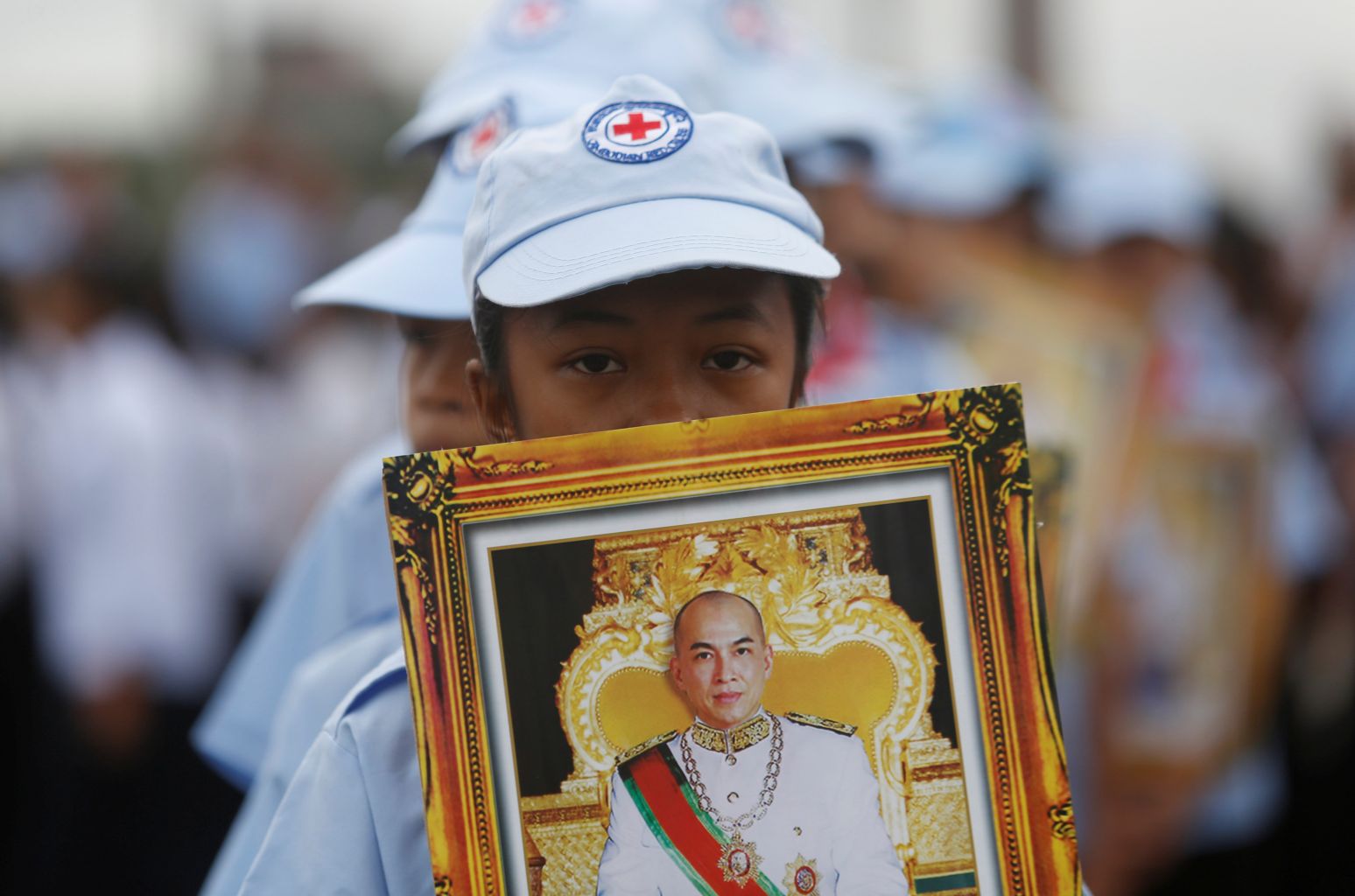Cambodia adopts lese majeste law, raising fears of politically motivated cases against govt critics
Sign up now: Get insights on Asia's fast-moving developments

A student holding a portrait of King Norodom Sihamoni during the 64th anniversary celebration of the country's independence, in Phnom Penh on Nov 9, 2017.
PHOTO: REUTERS
Follow topic:
PHNOM PENH (REUTERS) - Cambodia's Parliament on Wednesday (Feb 14) unanimously adopted a law that forbids insulting the monarchy as rights groups expressed concern the legislation, in effect in neighbouring Thailand, could be used against critics of the government.
The lese majeste law stipulates that a prosecutor can file a criminal suit on behalf of the monarchy against anyone deemed to be insulting the royal family.
Those found guilty would face between one and five years in prison and a fine of between US$500 and US$2,500 (S$660.18-3,300.75).
"An insult is expressed in words, gestures, writing, painting or objects that affect personal dignity," Mr Pen Panha, head of the parliamentary Commission on Legislation and Justice, told Parliament.
King Norodom Sihamoni is officially Cambodia's head of state, but long-serving Prime Minister Hun Sen has ruled the South-east Asian country for more than 33 years.
Rights groups said they feared the new law could be used to target critics of the government, a concern raised by rights groups in Thailand where lese-majeste can lead to up to 15 years in prison.
Prosecutions under the Thai law have risen since a 2014 coup and critics of the junta say it has been used as a means to silence dissent.
"There is a genuine danger that this law will be abusively applied to target those who express legitimate criticism of the royal government, as has been the case in other countries, such as Thailand," Mr Chak Sopheap, executive director at the Cambodian Centre for Human Rights, told Reuters.
Last year, Cambodia's ruling Cambodia People's Party had the main opposition Cambodian National Rescue Party dissolved and its leader, Kem Sokha, arrested on treason charges that he says were politically driven.
The crackdown comes ahead of a July general election in which Mr Hun Sen will be largely unchallenged.
The Senate needs to adopt the Bill and the King sign off on it before it comes into force, both formalities.

